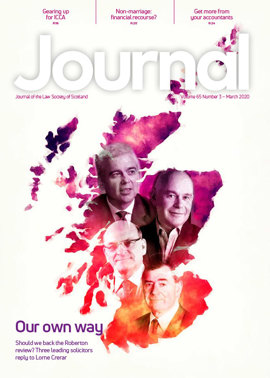Equal pay: a material defence?
Equal pay is one of the most common claims in the employment tribunal, and it is generally quite a formulaic type of claim. The defence to such a claim tends to contend that the reason for the difference in pay was not gender but a “material factor”. True to form, this was the defence of the BBC in the recent case brought against it by its presenter Samira Ahmed.
Ahmed chose Jeremy Vine as a comparator, given the similarities she saw between her role on Newswatch and his on Points of View. The fact that he was paid £3,000 per episode compared to her £440 also meant that her success in this claim could be extremely lucrative.
There are two key practical elements to the material factor defence: the first is the evidence that existed at the time decisions were made about pay rates, while the second is getting this evidence across before the tribunal. In this case, the BBC failed on both elements and faced the obvious wrath of the employment judge for so failing, as is clear from the rhetoric in the judgment.
Contemporaneous evidence
It is common in litigation about historic issues for there to be problems with evidence, and this was certainly the case here. However, the employment tribunal was forthright in its criticism of the BBC for its failings in this regard. The tribunal commented that: “those difficulties are easily surmountable if an organisation has transparent pay structures or processes for determining pay and for recording the rationale of its decisions about levels of pay. The BBC found itself in difficulties in this case because it did not (and, to an extent, still does not) have a transparent and consistent process for evaluating and determining pay for its on-air talent”.
So, a successful material factor defence will absolutely rely on the existence of evidence from the time pay decisions were made. Such decisions should be taken in a way which avoids both discrimination itself and the appearance of discrimination. Decisions should ideally be taken in line with agreed pay structures, and more ad hoc decisions on pay should be justified and a note kept to record the rationale.
Evidence at tribunal
Employment tribunals were set up in order to provide a process that is faster and less formal than the civil courts. Indeed a colleague of mine, when taking a very subtle point about the evidence before the tribunal, was told that “this is not the Chancery Division”. That notwithstanding, evidence rules are similar to those of the civil courts. Put simply, there must be evidence to support your contentions, and that evidence should be the best available. In this case, the evidence led by the BBC fell some way short of backing up their material factor defence.
The tribunal’s comments included the following: “The burden [to prove that the reason for the pay disparity was not sex] is not discharged by witnesses who had no involvement in setting those rates of pay speculating on what the reasons might have been, or attempting to provide an ex post facto justification for the disparity in pay… if the respondent fails to discharge that burden… the claimant succeeds.”
The barrister for Ahmed referred to this in her submissions, and it is difficult to understand why the BBC failed to call such witnesses. However, once it failed to do so, the tribunal was left with a relatively straightforward job – there was insufficient evidence for the tribunal to conclude that there was a material factor taken into account at the time of pay decisions. There may well have been one, but there was no evidence before the tribunal to this effect.
Documentary evidence fared little better. The tribunal was critical of a defence that seems to have been confused as to the different categories of programming at the BBC. An email before the tribunal described the task of presenting Points of View as being “easy money as it’s so little work”. Finally, the BBC made use of a Wikipedia entry as evidence, it claimed, of Vine’s high profile, along with a table of information which was undated, had no source and was not actually spoken to by any of the BBC’s witnesses. The tribunal, somewhat unsurprisingly, did not regard either document “as being wholly accurate or reliable”.
The Equal Pay Act 1970 is 50 years old. The Equality Act 2010 is 10 years old. Yet, employers continue to fail to adhere to the law on equality. The cost to the BBC of this case is thought to be in the region of £700,000, although the matter of remedy will not come before the tribunal, having been dealt with by way of extrajudicial settlement. Given that continuing lack of transparency over pay decisions, I suspect that there will be many further claims from Ahmed's colleagues, the total cost of which could be quite astronomical. While the way in which the defence was pled played a large part in the BBC’s failure in this case, it is likely to be the lack of contemporaneous evidence of pay decisions that will continue to haunt it in future.
The key message to employers here must be to get their houses in order, remove gender bias from pay (and other) decisions, and focus on running operations that are free from discrimination and the appearance of discrimination. The upside? An improvement in your bottom line through the reduction of the type of risk and cost the BBC has just had to swallow, and the comfort of having a sustainable business fit for the future.






